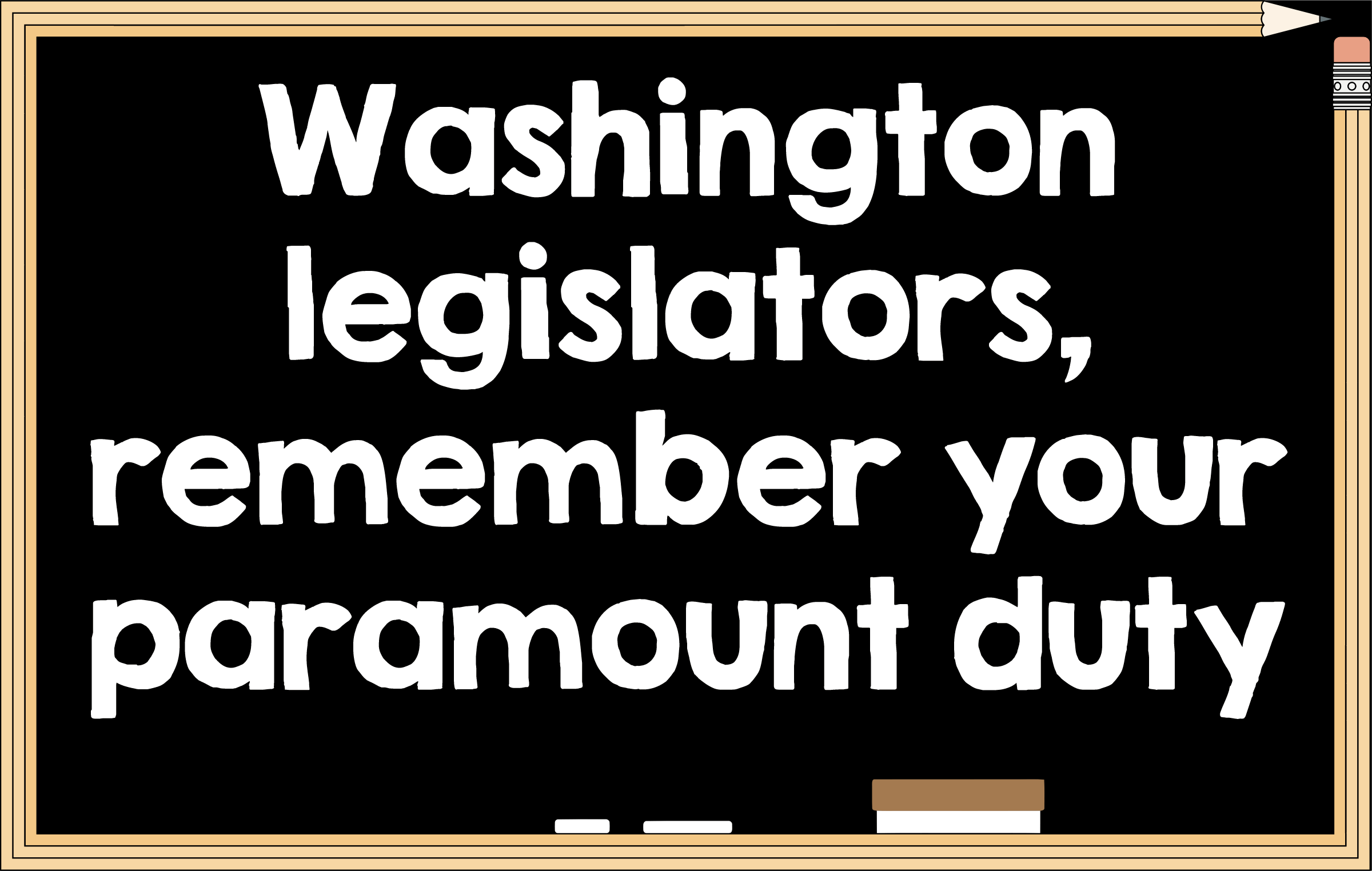Lawmakers representing Washington State’s House Democratic majority took the wraps off of their budget this afternoon, offering a starkly different plan for the next biennium than the Senate Republicans did last week.
“Our approach to the budget is ‘what’s best for kids?’ This budget and our [education funding] plan is what’s best for kids,” the caucus tweeted during a press conference highlighting key elements of the proposal.
The draft House Democratic budget calls for $44.7 billion to be invested in Washington’s public services over the next two years. $3 billion in new revenue would be raised to support these investments.
Key aspects of the budget that differ from the Senate Republicans’ proposal:
- Freezes college tuition at Washington’s public colleges and universities: “Unlike our colleagues in the Senate who have chosen to raise tuition, our budget freezes tuition,” says Representative Drew Hansen.
- Doesn’t reject federal money for healthcare: “Unlike the Senate Republicans we are accepting the Medicaid Transformation waiver, over $1 billion in federal funding,” says Representative Eileen Cody.
- $350 million investment in mental health includes money for salaries: “Our biggest investment [in mental health] is actually in paying those folks who are providing mental healthcare both out in the community and in our hospital settings — to make sure that folks can actually get the care that they need. And that’s probably the most fundamental difference between the Senate Republican budget and ours,” said Representative Laurie Jinkins.
- Doesn’t raise property taxes on families in suburban or urban school districts through a “levy swipe” scheme.
The centerpiece of the revenue component of the plan is a capital gains tax on the wealthy, which House Democrats estimate would raise approximately $715 million during the next biennium. The tax would only be levied on Washington’s 48,000 richest taxpayers. The other 98.5% would be unaffected. Sales of single family homes as well as retirement accounts would be exempt.
Washingtonians are overwhelmingly in favor of levying a capital gains tax on the wealthy to meet our state’s paramount duty. Last year, NPI found that support among Washingtonians for a capital gains tax had increased to sixty-five percent.
The specific language of our capital gains tax question was as follows:
Do you strongly support, somewhat support, somewhat oppose or strongly oppose taxing the capital gains of wealthy individuals to help pay for public schools, colleges and universities?”
These were the answers:
- Support: 65%
- 46% “strongly support” a capital gains tax
- 19% “somewhat support” a capital gains tax
- Oppose: 33%
- 9% “somewhat oppose” a capital gains tax
- 24% “strongly oppose” a capital gains tax
- 2% answered “not sure”
More than three-fifths of our respondents also agreed that schools are underfunded and that the State of Washington should increase revenue to invest in them.
Our question:
Do you strongly agree, somewhat agree, somewhat disagree or strongly disagree with the following statement: Washington’s public schools are underfunded, and we need to raise state revenue to fully fund them?
These were the answers:
- Agree: 63%
- 45% “strongly agree” that we need more revenue for schools
- 18% “somewhat agree” that we need more revenue for schools
- Disagree: 32%
- 18% “somewhat disagree” that we need more revenue for schools
- 14% “strongly disagree” that we need more revenue for schools
- 6% answered “not sure”
Our survey of 679 likely Washington State voters was in the field from June 14th-15th, 2016; all respondents participated via landline. The poll, conducted by Public Policy Polling, has a margin of error of +/- 3.8% at the 95% confidence level.
Washington has the most upside down, regressive tax code in the nation, as the chart below shows. The lowest income families currently pay the most in taxes, while the wealthiest families pay the least. That’s inequitable and unacceptable.

The House Democratic budget brings us a step closer towards ending this inequity.
Governor Jay Inslee praised the proposal in a statement issued through his office.
“When I rolled out my budget proposal in December, I was very clear that any final budget must meet two criteria: 1) Fully fund education; and 2) Protect vital state services for our most vulnerable,” the Governor said.
“The House budget does both those things. Their proposal fully and amply funds education while protecting critical services for our families and communities. The budget the Senate approved last week fails on both counts. That budget calls for large property tax increases and makes minimal new investments in education while cutting services to our students, their families and vulnerable people.”
“I am pleased we have two legislative budgets on the table and I look forward to working with the Senate and House over the coming weeks so we can reach agreement on a budget that fully and amply funds education and works for all Washingtonians,” the Governor added.
NPI commends the House Democratic caucus for crafting a budget that would put Washington State on the road to progressive tax reform.
The next step is to go from words on paper and pixels on screen to action: the House should demonstrate to Washingtonians that it is ready to enact these ideas into law so that voters appreciate who’s really standing in the way of revenue fairness: the Senate Republicans.

